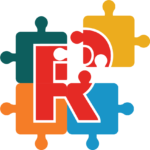Cognitive Flexibility
What is Cognitive Flexibility?
Cognitive flexibility refers to the mental ability to switch between thinking about different concepts. It involves adapting your thinking and behaviour in response to changing circumstances or new information. Here are some key aspects:
Cognitive flexibility refers to the mental ability to switch between thinking about different concepts. It involves adapting your thinking and behaviour in response to changing circumstances or new information. Here are some key aspects:
- Problem Solving
- Adaptability
- Perspective Taking
- Learning
Cognitive flexibility is an essential skill for effective functioning in daily life, work, and social interactions.
Jigsaw puzzles can enhance cognitive flexibility in several ways:
- Problem-Solving Skills: Working on a jigsaw puzzle requires adapting strategies as the puzzle progresses. If a particular piece doesn’t fit where expected, individuals must rethink their approach, developing flexibility in problem-solving.
- Adjusting to New Information: As more pieces are added, the overall picture changes, requiring puzzlers to adjust their understanding and strategies. This adaptability strengthens cognitive flexibility, as individuals learn to accommodate new information.
- Multi-tasking and Switching Focus: Jigsaw puzzles often require looking at multiple pieces and areas of the puzzle simultaneously. This practice helps enhance the ability to switch focus and manage different tasks or pieces effectively.
- Recognizing Patterns and Making Connections: As puzzlers identify colours, shapes, and patterns, they develop the ability to see connections between disparate elements. This skill is crucial for cognitive flexibility, as it involves thinking creatively and making associations.
- Trial and Error: Jigsaw puzzles encourage experimentation and learning from mistakes. When a piece doesn’t fit, puzzlers must be willing to try different pieces and placements, promoting a flexible mindset.
- Planning and Strategy Adjustment: As pieces are placed, individuals may need to alter their plans or strategies based on the current state of the puzzle, fostering the ability to adapt to changing circumstances.
Engaging in jigsaw puzzles encourages mental agility, adaptability, and a willingness to shift strategies, all of which are critical components for development of cognitive flexibility.
